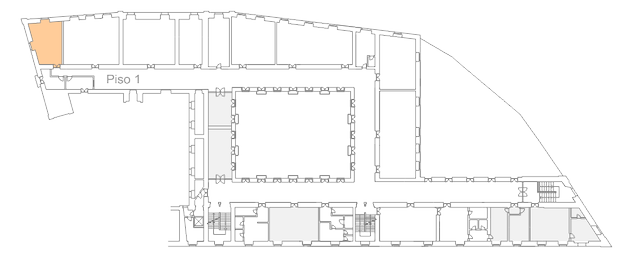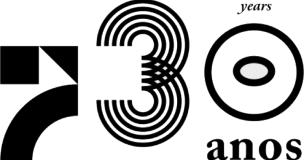Applied Cognitive Psychology Laboratory
Presentation |
| The Applied Cognitive Psychology Laboratory (LPCA) was established as a FPCEUC laboratory under this name in November 2013. As a laboratory research facility, it has had a much longer existence. Under the previous statutes of FPCEUC, the Experimental Psychology Laboratory (successor to the Experimental Psychology Laboratory created in 1912 at the Faculty of Arts of the University of Coimbra) grew out of it and so, from 2006 to 2009, did the activities of the Psychonomy and Human Factor Centre. Since 2001 activities of the LPCA have been supported by externally financed projects. Occasionally they have been co-financed by the Institute of Cognitive Psychology, Vocational and Social Development, an R & D unit of the FPCEUC, in the research area of "Applied Cognitive and Social Psychology ". |
RESEARCH AREAS |
| The LPCA carries out research on topics of perception, attention, judgment and decision-making with both fundamental and applied implications, particularly in the following areas: (a) facial cognition; (b) attentional, perceptive and sensorimotor ergonomics; (c) multimodal integration (particularly audio-visual and visuo-vestibular); (d) applied psychophysiology; (d) economic and consumer psychology; (f) experimental social psychology. |
METHODS |
| The LPCA combines in its research activities classic paradigms of experimental psychology, central (EEG / ERP) and peripheral (ECG, PNG, GSR, EMG) psychophysiology, psychophysical methods and joint measurement methodologies (functional measure, CBC, MaxDiff). |
EQUIPMENT |
| The LPCA comprises, among others, integrated monitoring features for eye movements (View Point System, from Arrington), central and peripheral electrophysiology (MP100 and MP150 systems from Biopac), peripheral synchronisation (StimTracker, I / 0 Measurement Computing boards) and response recording and analysis (eg, response boxes, vocal response key, voice analysis system, FACS, MAX and AFFEX systems for face measurement). It has the software features needed to perform medium-sized market research (eg Best-Worst Scaling from Sawtooth Software, Conjoint and Sensory modules from XLSTAT) |
Researchers |
FPCEUC TeachersFPCEUC Teachers Armando Mónica de Oliveira (Director) Eduardo João Ribeiro dos Santos Maria São João Breda Valentim Rodrigues Alferes Carlos Lopes Pires Post- Doctoral ResearchersPost- Doctoral Researchers Alba Grieco (FCT-Compromisso com a Ciência) Nuno Alexandre de Sá Teixeira (bolseiro FCT) Doctoral StudentsDoctoral Students Isabel Catarina Martins (bolseira FCT) Ana Duarte Silva Cláudia Reis Cristina Nazaré Sónia Pimenta Amélia Martins |
Funded Projects: |
Structure and Determinants of Emotion Intensity: A Psychophysical Approach (POCTI/PSI/41235/2001) [2002-2006: Concluded] Perceptual causality and dynamic representations: behavioural and electrophysiological data POCI/PSI/60769/2004 [2007-2009: Concluded] AlgFACS: A functional measurement approach to the integration of facial action units, with basic and applied prospects (PTDC/PSI/73406/2006) [2008-2012: Concluded] Metric properties of facial scales for measurement of pain intensity in children: a comparative study with functional measurement (PTDC/PSI-PCO/107910/2008) [2009-2014: approaching conclusion] Energy Box: development and implementation of a demand-responsive energy management system (MIT/SET/0018/2009) [proposing institution: INESC Coimbra: 2010 -2014: approaching conclusion] |
Some illustrative publications (2012 - ) |
Grieco, A., Oliveira, A. M. (submitted in 2014). Differences in the properties of delta and theta frequency band activities underlie the differential processing of figure-ground and homogeneous displays. Vision Research Grieco, A., Oliveira, A. M., Viegas, R. (submitted in 2014) Dissociated learning mechanisms help speed up response times. Vision Research. Prigent, E., Amorim, M.-A., Oliveira, A. M. (submitted in 2014). I see pain in your eyes: expertise sensitivity to facial expressions. Attention, Perception & Psychophysics. Duarte, R., Ferreira, N., Oliveira, A. M., Fonseca, F., Vieira-Silva, M., & Correia-Pinto, J. (2014). Benefits of radial distortion correction in arthroscopic surgery: a first experimental study on a knee model. The International Journal of Medical Robotics and Computer Assisted Surgery [in press]. pdf [link to be provided] Gonçalves, J. C., Oliveira, A. M., Batalha, L. C., Fernandes, A., Viegas, R., Silva, A. D. (2014). A functional measurement approach to the Children's Anxiety and Pain Scale-CAPS: Contributions to its construct validity. Psicológica: International Journal of Methodology and Experimental Psychology [in press] pdf de Sá Teixeira, N., Oliveira, A. M. (2014). Spatial and foveal biases, not perceived mass or heaviness, explain the effect of target size on representational momentum and representational gravity. Journal of Experimental Psychology: Learning, Memory, and Cognition, epub, (2014): awaiting printing, pdf de Sá Teixeira, N. A., Hecht, H., & Oliveira, A. M. (2013). The representational dynamics of remembered projectile locations. Journal of Experimental Psychology: Human Perception and Performance, 39, 1690-1699. pdf de Sá Teixeira, N. A., Pimenta, S., & Raposo, V. (2013). A null effect of target's velocity in the visual representation of motion with schizophrenic patients. Journal of Abnormal Psychology, 122, 223-230. pdf Viegas, R. G, Oliveira, A. M, Garriga-Trillo, A.; Grieco, A.. (2012). A functional model for the integration of gains and losses under risk: Implications for the measurement of subjective value. Psicologica: International Journal of Methodology and Experimental Psychology, 33: 711 - 733. pdf Oliveira, A. M., Silva, A. D., Viegas, R., Teixeira, N. S. (2012). What makes Mona Lisa smile? Investigating a halo model of configural face effects. In Craig Leth- Steensen (Eds.) Proceedings of the 28th Annual Meeting of the International Society for Psychophysics (pp. 203-208). Otawa, CAN: International Society for Psychophysics. pdf Oliveira, A. M. & Abreu, M. V. (2012). The reception of Experimental Psychology in Portugal in the early decades of the 20th century: The creation of the first Portuguese Laboratory of Experimental Psychology as a privileged analyzer. Revista de Historia de La Psicologia, 33 (4), 37- 56. Pdf Pereira, T. S., Oliveira, A. M., & Fonseca, I. B. (2012). The observable R and the unobservable r: Brain and rating responses in a free viewing task with pairs of emotional faces. In Craig Leth- Steensen (Eds.) Proceedings of the 28th Annual Meeting of the International Society for Psychophysics (209-213). Otawa, CAN: International Society for Psychophysics. pdf Oliveira, A. M., Viegas, R., Breda, S. J. (2012). Is forecasting consumers’ adherence to energysaving products so different from product development after all? In C. Hengeller-Antunes and J. C Vieira (Org.) Proceedings of the International Workshop EEMSW 2012 (pp. 1-8). |
Regular Collaborators |
Étienne Mullet (Ècole Pratique des Hautes Études -Director do « Laboratoire travail et Cognition ») Marcus Vinícius Baldo (Instituto de Ciências Biomédicas da Universidade de São Paulo- Director do Laboratório de Fisiologia Sensorial Roberto Vieira) Michel-Ange Amorim (Universidade Paris Sud 11 – Laboratoire Contrôle Moteur et Perception) Norman H. Anderson (Prof. Emérito da Universidade da Califórnia, San Diego) Isabel Barahona da Fonseca (Faculdade de Psicologia da Universidade de Lisboa) Maria de Fátima Simões (Universidade da Beira Interior) Guilherme Campos (Instituto de Engenharia Electrónica e Telemática de Aveiro. Universidade de Aveiro) Cristina de Sousa (Instituto Piaget; Universidade de Évora; directora do Facin Lab) |
Location and Contacts: |
 |





